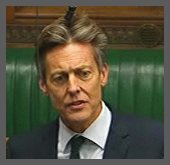 Along with many other MPs I spoke in the Equal Marriage debate on the 5th of February, my speech can be found below. I am pleased to say the bill was passed with huge majority of 400-175.
Along with many other MPs I spoke in the Equal Marriage debate on the 5th of February, my speech can be found below. I am pleased to say the bill was passed with huge majority of 400-175.
I have also included my recent questions on Civil Partnerships and Women Bishops, two other issues I continue to follow closely.
Equal Marriage Speech
Mr Ben Bradshaw (Exeter) (Lab): May I say what a privilege it is to follow that excellent speech.
Given the time constraints, I will focus my comments on my perspective as a member of both the Anglican Church and the Ecclesiastical Committee of this and the other place. I entirely support the Government’s decision to make this a permissive law, allowing those religions and denominations that wish to celebrate the loving same-sex relationships of their members to do so. As the right hon. Member for Arundel and South Downs (Nick Herbert) said, it would have been completely perverse to say to Quakers, the United Reformed Church or progressive synagogues, which wish to value and support their gay and lesbian members fully, that they would not be allowed to do so.
Indeed, there are many Anglicans and Roman Catholics who wish that their Churches were as open and welcoming as those that support the Bill entirely. In fact, all the opinion polls show that a majority not just of the public, but of Anglicans and Roman Catholics in this country support equal marriage. However, in their wisdom, the leaderships of the Church of England and the Roman Catholic Church are not yet prepared to take such a step. That is their prerogative. It is perfectly possible to make the argument that, as a particular religion understands it, marriage can only be between a man and a woman. However the Churches’ credibility in arguing that would be a lot greater if they welcomed and celebrated civil partnerships. The fact that they do not do so leads me to conclude only that their objection to the Bill is not about the institution of marriage or even the word, but about a residual prejudice against same-sex relationships.
The Church of England has claimed, and repeated in the briefing provided for today’s debate, that because of its established status and the need for state law and canon law to be compatible, it requires an extra safeguard in the Bill that specifically does not allow same-sex weddings in the Church of England and Church in Wales—the so-called quadruple lock. When, however, in the presence of the new Archbishop of Canterbury, Members of this House and the other place asked the Bishop of Leicester, who speaks for the bishops in the other place, why the Church wanted that quadruple lock, he said
“we didn’t want it, hadn’t asked for it, and hadn’t been consulted.”
When the Minister responds to the debate, I would be grateful if she could clear up the confusion in Anglican circles on the issue of the quadruple lock. Were the Church of England to embrace same-sex marriage at some stage—as I and many in the Church hope it will—will the Minister confirm that there will be no need for more primary legislation or an amendment to primary legislation in this House, as has been stated?
I am not a constitutional expert, but having been in this House for 15-odd years I am not aware of any precedent whereby an outside institution can unilaterally decide to change primary legislation passed in this House. I therefore question the Church of England’s claim that were it to change its mind in future, it could do so just like that—easy, the Synod could get on and vote for it and we would not have to do anything. My fear is that it would be another long and convoluted process and that we would have to amend primary legislation. Will the Minister check once again whether the quadruple lock is necessary in law, and whether the Church is being completely upfront with its members about the hurdles in front of it?
I would also be grateful if the Minister would explain what would happen in the case of a Church of England priest who wanted to marry members of their congregation in another church—a Quakers meeting house, for example, or a United Reform Church. Would that priest be banned from doing so under the proposed law?
Civil Partnership Question
Mr Ben Bradshaw: What the policy of the Church of England is on celebrating civil partnerships.
Sir Tony Baldry: The Church of England’s position remains as set out in the House of Bishops pastoral statement of July 2005. A working group chaired by the former Northern Ireland Office permanent secretary, Sir Joseph Pilling, is reviewing the Church’s approach to sexuality more generally and will submit a report to the House of Bishops by the end of this year. A private member’s motion seeking to authorise the registration of civil partnerships in Church of England churches is due for discussion in the General Synod in due course.
Mr Bradshaw: As the hon. Gentleman will know, a number of senior Church of England bishops have, in the context of the debate on same-sex marriage, expressed their support for civil partnerships, but would the Church of England’s opposition to same-sex marriage, and the distinction it tries to draw, be more credible and have more authority if it allowed Church of England parishes that want to conduct civil partnerships to do so?
Sir Tony Baldry: The right hon. Gentleman makes his point well. Given the sensitivity of the issue, the most sensible thing for me to do is to ensure that his comments and those of any other right hon. and hon. Members are drawn to the attention of Sir Joseph Pilling.
Women Bishops Question
Mr Bradshaw: To ask the honourable Member for Banbury, representing the Church Commissioners, what discussions he has had on the emergency powers or procedures available to expedite the passage of a new Women Bishops Measure.
Sir Tony Baldry: I refer the hon. Member to the memorandum from the Secretary General of the General Synod which was placed in the Library of the House on 19 December.
It is my understanding that the working group established by the House of Bishops had its first meeting on 3 January and meets again on 30 January in preparation for facilitated discussions with a larger group and a meeting of the House of Bishops in the first week of February.

